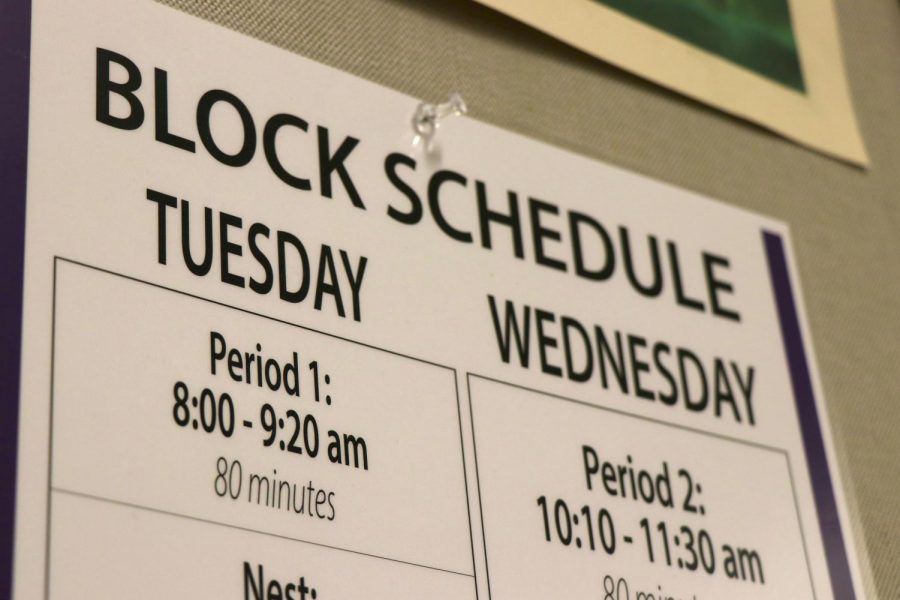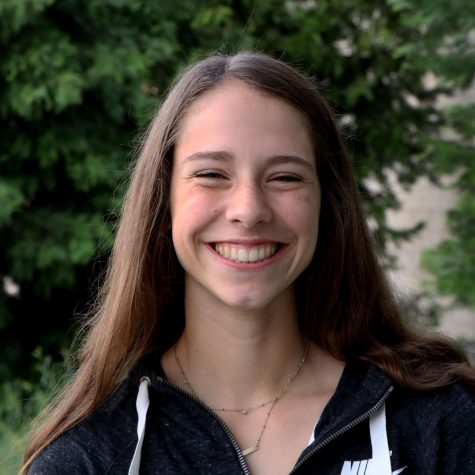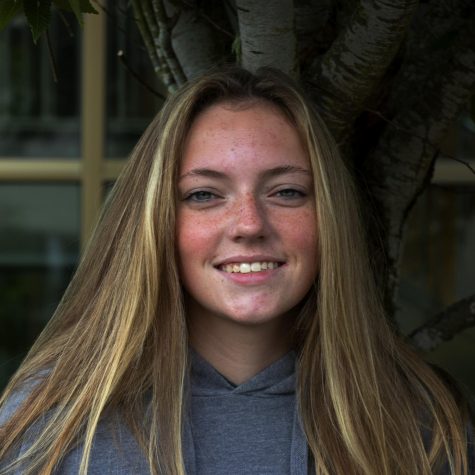Mixed Reactions to the New Seven Period Block Schedule
NEW YEAR, NEW SCHEDULE! A new seven period modified block schedule has been introduced to Issaquah High School for the 2019-2020 school year. The results are promising more opportunities for students to take electives, AP classes, and explore career options.
September 27, 2019
New school year, new schedule. For the past four years at Issaquah High School, students have adjusted to a new schedule every year as new programs like Nest, a built-in time to study and get extra help from teachers, and other programs have been added. But this new schedule is taking these annual changes to a new level.
This year’s changes have been implemented with the intent to expand opportunities for students. Superintendent Ron Thiele, interviewed by The Issaquah Reporter, explains the schedule was established to “meet the pre-established criteria of providing students with additional opportunities for exploration, enrichment and remediation in era of Core 24 Graduation Requirements.” During the course of last year, Thiele organized a committee made of teachers, administrators and parents to discuss different schedule options, meeting a total of five different times. On the Issaquah High School campus, surveys were conducted to understand students’ viewpoints and hearing sessions were also available so students could voice their opinions on the new schedule.
Although there were differing opinions on what schedule to vote for, sophomore Leah Jasinski said, “ I voted for the seven period schedule because I wanted more space in my schedule.” Many other students also said that they voted for the seven period schedule in order to open up space in their schedules for electives or other opportunities. Before the seven period modified block schedule, students were limited to six classes a year. With Core 24 requirements in place, students would not meet the graduation requirements if they failed a class, and were limited in their opportunities to expand interests beyond the core subject classes. While talking to senior Aditi Prabhala, she expressed her excitement for this new schedule but also wishes that she had “the seven-period schedule since freshman year which would have opened many opportunities to take classes outside of the Core 24.”
A report done by students at UC Berkeley found that compared to a six period day, the seven period block schedule “allows for more ‘total’ instructional time, more opportunity to provide acceleration and intervention, pathway CTE or elective courses.” A North Carolina school system found that “students benefit from a less fragmented curriculum… there’s an improvement in discipline, dropout rate seems to decrease… [and] there is more time for the development of meaningful rapport between students and teachers.” Junior Aja Jensen found that the new schedule has opened many new opportunities, allowing her “to take ASL all four years of high school and take Advanced Sports Medicine,” helping her pursue two of her favorite subjects, and explore them as possible career paths.
Principal Andrea McCormick sent out an email to all students and parents of Issaquah High School at the end of the 2018-2019 school year to confirm the new school schedule plans, and she addressed the purpose of the change to open opportunities and “help prepare [students] for their post high school pathways.” As seen with Jensen, many students have taken advantage of this opportunity and are broadening their scope for career options. By providing students with opportunities to explore their interests, it can help to provide direction and save years that might have been spent trying to decide what path to pursue.
With every change, there are advantages as well as disadvantages, and some students are definitely not happy with the changes. The adjusted Nest time this year has not had a great response overall, but will still provide students time to talk to teachers and to do homework. Nest time will be more strictly regulated to focus students on their school work instead of using it purely for socializing, and attendance will be taken in order for the time to count for the state required instructional minutes. Jasinski said, “I miss having Nest time every day like last year. It was always a nice break in the middle of the day, although the morning Nest time on Tuesdays are still pretty nice.” North Carolina teachers also commented that there is “less total class time… [students] have more extensive homework to complete daily in each class, [students] may become bored easily if the teaching methods are too teacher focused… some students have a more difficult time keeping up with the faster pace that is inherent to block scheduling.” Many teachers and students have expressed concern for the loss of class time each week, especially with AP classes. Prabhala expressed that “AP classes are always fast paced, but the time cut away from class will probably mean more homework in order to fit in the same content before the AP test.” Students have also expressed mixed feelings toward and concerns about block days versus full seven period days. Freshman Ryan Shipley said, “The block schedule days with 80 minute classes are really long, making it hard to focus.” Some teachers have done a good job about filling their longer class periods with mixed activities to keep students engaged, but Jensen says that “in some classes, like history, it’s hard to focus for long lectures.” While some teachers struggle to keep students engaged, others have seized the opportunity and given students time to start their homework and ask questions during the class period.
Change is always hard, but overall, these changes seem to be for the best. The new schedule has opened many opportunities for students to explore their interests and mix up their schedule with core classes and electives.




